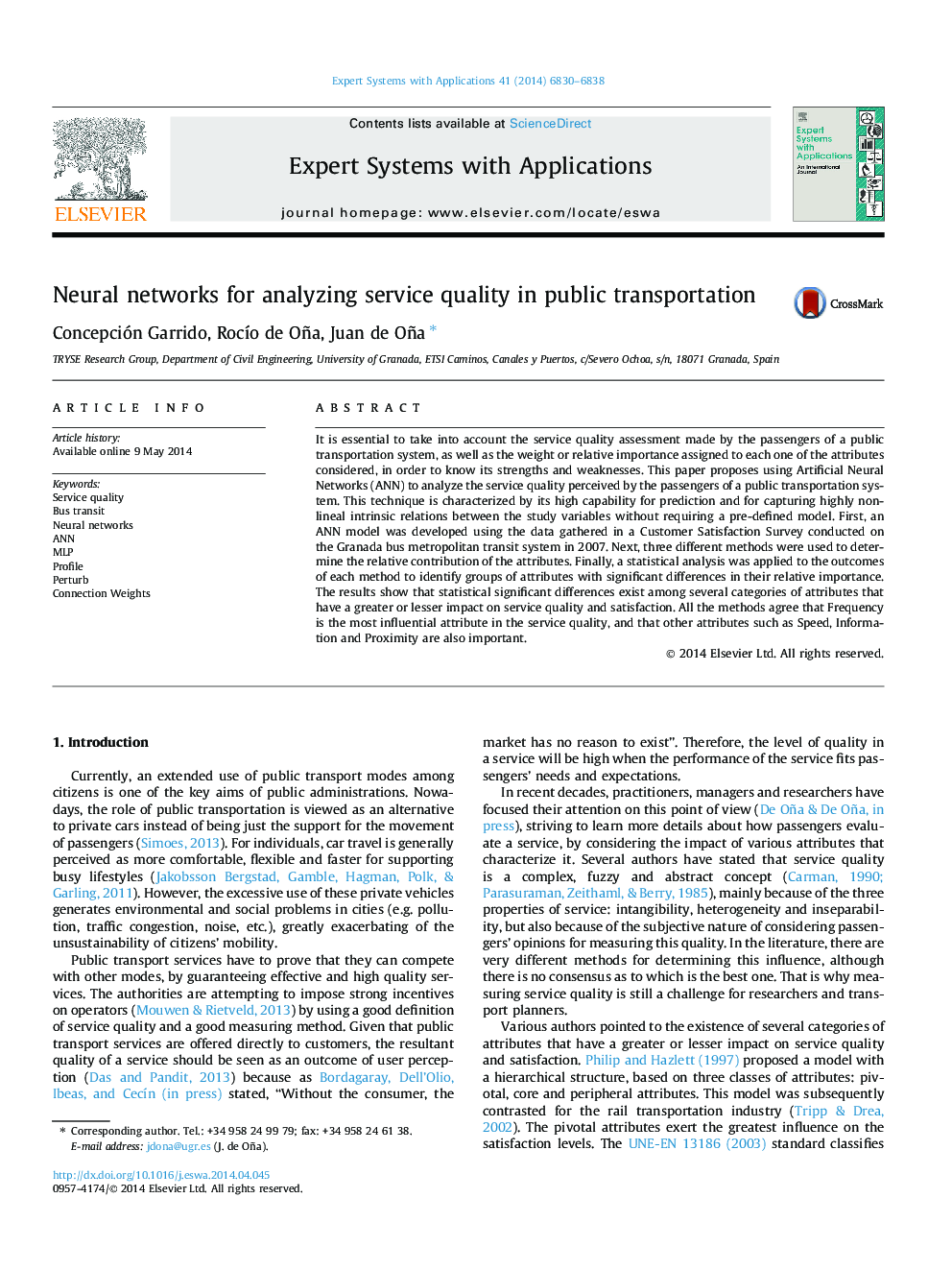| Article ID | Journal | Published Year | Pages | File Type |
|---|---|---|---|---|
| 382816 | Expert Systems with Applications | 2014 | 9 Pages |
•This paper presents a new approach to evaluating service quality in public transport systems using Artificial Neural Networks (ANN).•ANN analysis represents a powerful methodology because its high capability for prediction and due to it does not require a pre-defined model.•This study rises a well-understanding about different categories of attributes that have a greater or lesser impact on transit service quality.•Three different algorithms are used to validate and corroborate the outcomes.
It is essential to take into account the service quality assessment made by the passengers of a public transportation system, as well as the weight or relative importance assigned to each one of the attributes considered, in order to know its strengths and weaknesses. This paper proposes using Artificial Neural Networks (ANN) to analyze the service quality perceived by the passengers of a public transportation system. This technique is characterized by its high capability for prediction and for capturing highly non-lineal intrinsic relations between the study variables without requiring a pre-defined model. First, an ANN model was developed using the data gathered in a Customer Satisfaction Survey conducted on the Granada bus metropolitan transit system in 2007. Next, three different methods were used to determine the relative contribution of the attributes. Finally, a statistical analysis was applied to the outcomes of each method to identify groups of attributes with significant differences in their relative importance. The results show that statistical significant differences exist among several categories of attributes that have a greater or lesser impact on service quality and satisfaction. All the methods agree that Frequency is the most influential attribute in the service quality, and that other attributes such as Speed, Information and Proximity are also important.
